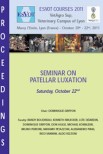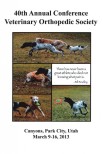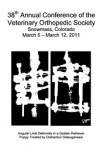Abstract: Reasons for performing study: More sensitive and specific diagnostic methods for early detection of changes in the joint cartilage are needed. Cartilage-derived retinoic acid-sensitive protein (CD-RAP) is a potential marker of cartilage synthesis and regeneration. This is the first study on equine CD-RAP. Objectives: To evaluate the ability of a commercially available human sandwich ELISA assay to detect equine CD-RAP in synovial fluid from healthy and diseased joints. Methods: Synovial fluid was collected from 28 horses with no signs of joint disease and from 5 with induced inflammatory arthritis. CD-RAP concentrations were measured using a human CD-RAP ELISA. Intra- and interassay imprecision of the assay were evaluated by multiple measurements on pools of equine synovial fluid. Assay inaccuracy was determined by linearity under dilution. Results: The assay showed moderate to large intra- and interassay variation when applied to equine synovial fluid. Equine CD-RAP was detected in synovial fluid from healthy horses ranged at 8.2-52 ng/ml. Repeated arthrocentesis (after injection of isotonic saline), age, joint or gender did not significantly affect CD-RAP concentrations. Twelve hours after intra-articular injection of lipopolysaccharide, concentrations of CD-RAP were significantly lower than after injection of isotonic saline and remained significantly lower until the end of the study at 144 h. Conclusion and potential relevance: The assay is suitable for longitudinal monitoring of CD-RAP concentration in individual horses. Disease significantly influenced CD-RAP levels. Similar to previous results obtained in man, CD-RAP seems to be a marker of cartilage synthesis and/or regeneration in horses.
Cartilage-derived retinoic acid-sensitive protein in equine synovial fluid from healthy and diseased joints
Date
September 2008
Journal
Equine Veterinary Journal
Volume
40
Number
6
Pages
553-557(5)









